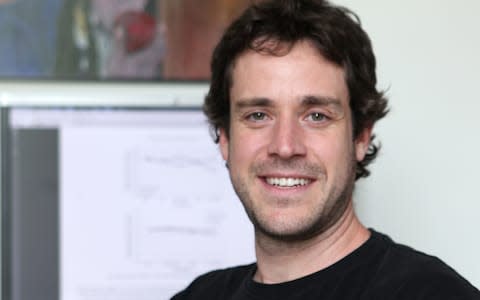Conspiracy theorists share certain traits, scientists find
Conspiracy theorists who believe the Moon landings were faked, or that the world is controlled by a small sinister cabal, have similar character traits, scientists have discovered.
Researchers surveyed 1,200 people asking them whether they believed in two specific urban myths and also assessed their personalities
They found those who tend to believe conspiracy theories tend to be more suspicious, untrusting, eccentric with a tendency to view the world as inherently dangerous. They also need to feel special.
“People who are reluctant to believe in conspiracy theories tend to have the opposite qualities, said Josh Hart, associate professor of psychology, of Union College, New York, who carried out the study.
"Conspiracy theorists are also more likely to detect meaningful patterns where they might not exist. People who are reluctant to believe in conspiracy theories tend to have the opposite qualities."

For the study Dr Hart and his team asked whether they agreed with generic conspiratorial statements, such as: "The power held by heads of state is second to that of small unknown groups who really control world politics," and "Groups of scientists manipulate, fabricate or suppress evidence in order to deceive the public."
They were also invited to look at a computer screen with triangles moving around at random asked to say whether they thought there was a pattern to the movement.
They found that people with a set of traits called 'schizotypy’, or unusual beliefs and fears, were more likely to believe in the statements and feel that triangles were moving in a deliberate pattern.
And they were more likely than nonbelievers to judge nonsensical statements as profound, a tendency known as "BS receptivity".
"In other words, they inferred meaning and motive where others did not," added Dr Hart.
“If you are the type of person who looks out at the world and sees a chaotic, malevolent landscape full of senseless injustice and suffering, then perhaps there is a modicum of comfort to be found in the notion that there is someone, or some small group of people, responsible for it all. If 'there's something going on,' then at least there is something that could be done about it."

However Dr Hart admits that sometimes conspiracy theories have proven to be correct.
"After Watergate, the American public learned that seemingly outlandish speculation about the machinations of powerful actors is sometimes right on the money," he said.
"And when a conspiracy is real, people with a conspiracist mindset may be among the first to pick up on it while others get duped.
"Either way, it is important to realize that when reality is ambiguous, our personalities and cognitive biases cause us to adopt the beliefs that we do. This knowledge can help us understand our own intuitions."
The resaarch was published in the Journal of Individual Differences.

 Yahoo News
Yahoo News 